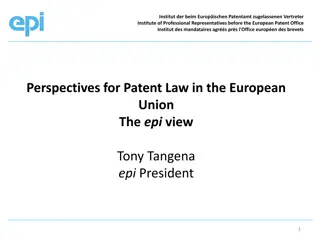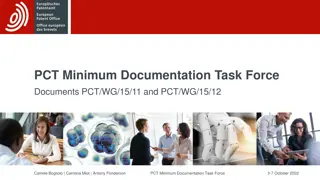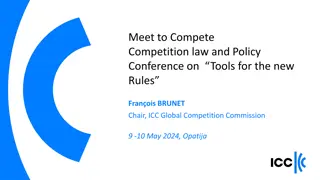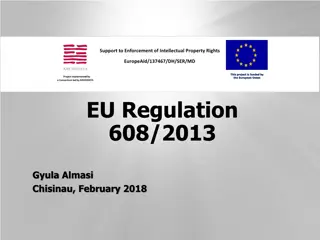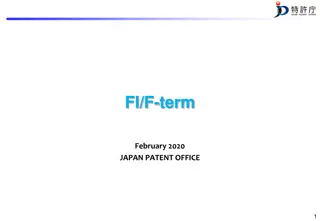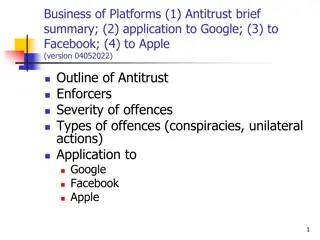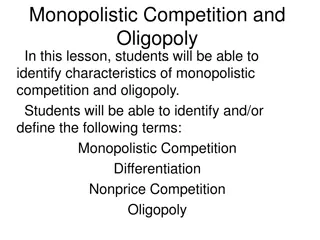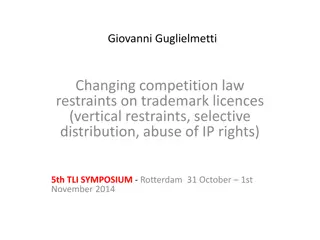Patent-Antitrust Interface: Balancing IPR and Competition in Developing Countries
Economic growth requires a balance between Intellectual Property Rights (IPR) and competition. Developing countries face challenges in incentivizing innovation while safeguarding consumer welfare. The discussion delves into the complexities of the patent-antitrust interface, emphasizing the need for a more pro-consumer approach and tailored strategies for fostering innovation in these regions.
Download Presentation

Please find below an Image/Link to download the presentation.
The content on the website is provided AS IS for your information and personal use only. It may not be sold, licensed, or shared on other websites without obtaining consent from the author. Download presentation by click this link. If you encounter any issues during the download, it is possible that the publisher has removed the file from their server.
E N D
Presentation Transcript
A Developmental Approach to the Patent- Antitrust Interface Plenary 1: Finding the Right Balance between IPR and Competition Thomas K. Cheng University of Hong Kong
Economic Growth vs. Development Solow, Romer and other economists have identified productivity growth/improvement as the key to economic growth Development: More than just economic growth Some concern for equitable distribution of income Other developmental dimensions such as access to basic healthcare and education .
Innovation and Developing Countries A theoretical analysis of the relationship between patent protection and incentive to innovate Empirical studies Taylor & Silberston (1973) Mansfield (1986) The Yale survey (1987) Scherer & Weisburst (1995)
Innovation and Developing Countries Innovation Incentive Externalities A concern for developing countries? Arguments in favor of a pro-consumer stance toward the patent-antitrust interface: Excessive consumer welfare loss Impaired access to basic necessities Stifling of domestic imitation
Some General Principles Scepticism about innovation incentive-based justifications Industry-specific approach Need to provide room for domestic innovation Focus on protecting consumer welfare Special regard to SMEs
Questions for consideration How feasible is the more pro-consumer approach to the patent-antitrust interface outlined above? Is an industry-specific approach too complicated for developing countries? At what point does a developing country to acquire sufficient innovative capacity for the law to be more focused on innovation?


